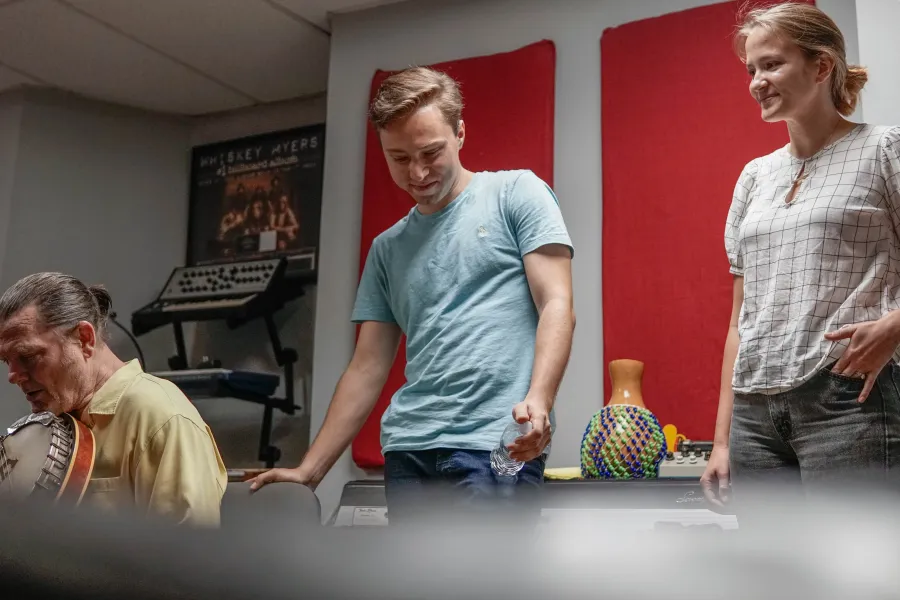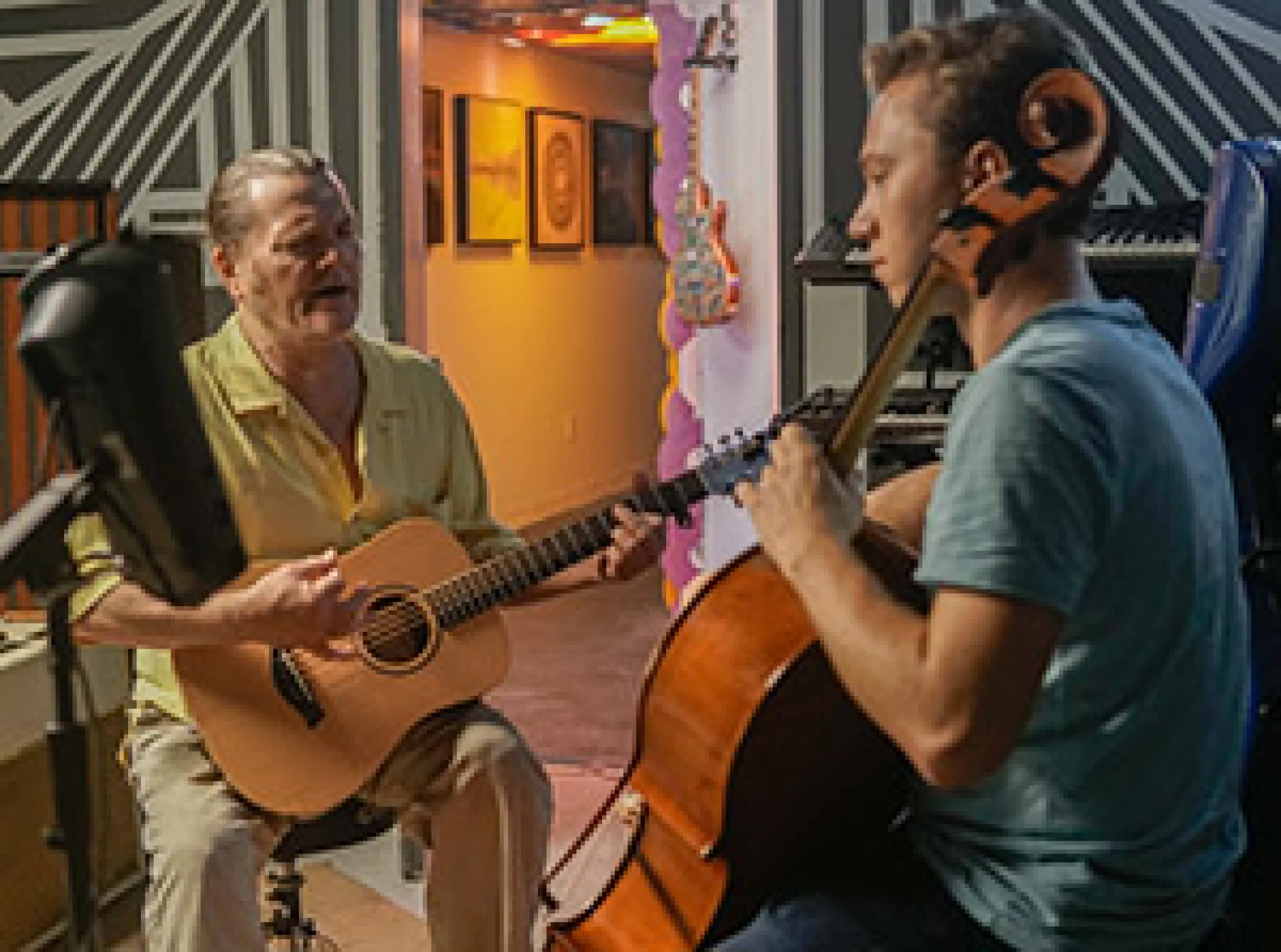July 22, 2021

Butler School students Abbey Young (right) and Matthew Gustafson (center) listen to Vernon Rust's (left) song "Eye for an eye." The studio time was made possible with funding from the Graduate Music Award from the Presser Foundation, which Young was awarded last spring.
By: Franco LaTona
After playing a song he had written six years ago over and over in his head, Vernon Rust finally got his chance to record it recently at the Mosaic Sound Collective in Austin’s far eastside. He played guitar and sang vocals and was accompanied by recent Butler School of Music alumnus Matthew Gustafson who played cello.
“I’ve been hearing you in my dreams for six years,” Rust told Gustafson after playing together for the first time.

Vernon Rust (left) and Matthew Gustafson (right) play and record "An eye for an eye," a song Rust wrote several years ago, and has been waiting to record it ever since.
It was made possible with funding from the Graduate Music Award from the Presser Foundation, which was awarded to Butler School doctor of musical arts candidate Abbey Young last spring.
Young has not experienced homelessness but lives at Community First! Village in support of its mission where Rust is one of her neighbors. Located in Austin’s far east side, the village provides small homes and RVs as part of a self-sustained community for people who have experienced chronic homelessness.
A country musician who wrote songs with Keith Urban, Rust said a series of professional mishaps coupled with drug and alcohol use led to a life on the streets. He spent 10 years living under a bridge in Nashville, resulting in post-traumatic stress disorder.
“It’s hard out there,” Rust said. “You’re always sleeping with one eye open.”
When Rust met his current wife, Helen, the two purchased an RV and lived on the road until moving into a small home in Community First! Village with their two puppies last August.
“We laugh all day,” Rust said about his life at the village.
His song is named after a quote widely attributed to Mahatma Gandhi, “An eye for an eye makes the whole world blind.” It addresses some of the most pressing contemporary issues in the U.S. like environmental justice, gun violence and homelessness.

Vernon Rust is brought to tears after hearing his song on record for the first time. "I'm so overwhelmed right now," he said.
“If you see someone beggin’ on the side of the street,
Well he didn’t get there on some winning streak,
Ain’t no way to know the pain that he’s in,
Well you can’t feed the world but you could sure feed him,” one stanza reads.
“It’s the ultimate protest song,” Rust said proudly.
In planning for the recording, Rust told Young he needed a cellist to accompany his guitar and vocals, so she asked her friend and fellow Butler School student Matthew Gustafson who graduated with a master of music degree last spring.
Still living in the city having recently won an audition with Austin’s Symphony Orchestra, Gustafson said he jumped at the opportunity to play with Rust.
“It’s just special to give voice to a segment of the population that doesn’t always have one,” he said. “And music is something that unites us even though our life circumstances might be different.”
The recording was part of a week-long project that featured Young’s neighbors at Community First!, all of whom have experienced homelessness.
“The point is to uplift our neighbors and showcase the music they’ve worked so hard on,” Young said. “But more than that, I think the music is genuinely good and people are going to love it.”
The songs will be uploaded to the Pure Goodness Music Collective website, which is a group created and sustained by residents at Community First!. People can listen to the songs and make donations directly on the site.
For Rust, who was brought to tears after listening to his song for the first time, said he hopes it will cause people to stop and reflect.
“You get 100 people acting better out there, I’d call that a success,” he said.

